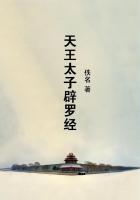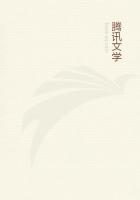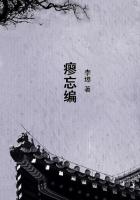"Oh, it's easy enough to make a fortune," Henry said.
"It seems to be easier than it is, I begin to think," replied Philip.
"Well, why don't you go into something? You'll never dig it out of the Astor Library."
If there be any place and time in the world where and when it seems easy to "go into something" it is in Broadway on a spring morning, when one is walking city-ward, and has before him the long lines of palace-shops with an occasional spire seen through the soft haze that lies over the lower town, and hears the roar and hum of its multitudinous traffic.
To the young American, here or elsewhere, the paths to fortune are innumerable and all open; there is invitation in the air and success in all his wide horizon. He is embarrassed which to choose, and is not unlikely to waste years in dallying with his chances, before giving himself to the serious tug and strain of a single object. He has no traditions to bind him or guide him, and his impulse is to break away from the occupation his father has followed, and make a new way for himself.
Philip Sterling used to say that if he should seriously set himself for ten years to any one of the dozen projects that were in his brain, he felt that he could be a rich man. He wanted to be rich, he had a sincere desire for a fortune, but for some unaccountable reason he hesitated about addressing himself to the narrow work of getting it. He never walked Broadway, a part of its tide of abundant shifting life, without feeling something of the flush of wealth, and unconsciously taking the elastic step of one well-to-do in this prosperous world.
Especially at night in the crowded theatre--Philip was too young to remember the old Chambers' Street box, where the serious Burton led his hilarious and pagan crew--in the intervals of the screaming comedy, when the orchestra scraped and grunted and tooted its dissolute tunes, the world seemed full of opportunities to Philip, and his heart exulted with a conscious ability to take any of its prizes he chose to pluck.
Perhaps it was the swimming ease of the acting, on the stage, where virtue had its reward in three easy acts, perhaps it was the excessive light of the house, or the music, or the buzz of the excited talk between acts, perhaps it was youth which believed everything, but for some reason while Philip was at the theatre he had the utmost confidence in life and his ready victory in it.
Delightful illusion of paint and tinsel and silk attire, of cheap sentiment and high and mighty dialogue! Will there not always be rosin enough for the squeaking fiddle-bow?
Do we not all like the maudlin hero, who is sneaking round the right entrance, in wait to steal the pretty wife of his rich and tyrannical neighbor from the paste-board cottage at the left entrance? and when he advances down to the foot-lights and defiantly informs the audience that, "he who lays his hand on a woman except in the way of kindness," do we not all applaud so as to drown the rest of the sentence?
Philip never was fortunate enough to hear what would become of a man who should lay his hand on a woman with the exception named; but he learned afterwards that the woman who lays her hand on a man, without any exception whatsoever, is always acquitted by the jury.
The fact was, though Philip Sterling did not know it, that he wanted several other things quite as much as he wanted wealth. The modest fellow would have liked fame thrust upon him for some worthy achievement;it might be for a book, or for the skillful management of some great newspaper, or for some daring expedition like that of Lt. Strain or Dr.
Kane. He was unable to decide exactly what it should be. Sometimes he thought he would like to stand in a conspicuous pulpit and humbly preach the gospel of repentance; and it even crossed his mind that it would be noble to give himself to a missionary life to some benighted region, where the date-palm grows, and the nightingale's voice is in tune, and the bul-bul sings on the off nights. If he were good enough he would attach himself to that company of young men in the Theological Seminary, who were seeing New York life in preparation for the ministry.
Philip was a New England boy and had graduated at Yale; he had not carried off with him all the learning of that venerable institution, but he knew some things that were not in the regular course of study. A very good use of the English language and considerable knowledge of its literature was one of them; he could sing a song very well, not in time to be sure, but with enthusiasm; he could make a magnetic speech at a moment's notice in the class room, the debating society, or upon any fence or dry-goods box that was convenient; he could lift himself by one arm, and do the giant swing in the gymnasium; he could strike out from his left shoulder; he could handle an oar like a professional and pull stroke in a winning race. Philip had a good appetite, a sunny temper, and a clear hearty laugh. He had brown hair, hazel eyes set wide apart, a broad but not high forehead, and a fresh winning face. He was six feet high, with broad shoulders, long legs and a swinging gait; one of those loose-jointed, capable fellows, who saunter into the world with a free air and usually make a stir in whatever company they enter.
After he left college Philip took the advice of friends and read law.
Law seemed to him well enough as a science, but he never could discover a practical case where it appeared to him worth while to go to law, and all the clients who stopped with this new clerk in the ante-room of the law office where he was writing, Philip invariably advised to settle--no matter how, but settle--greatly to the disgust of his employer, who knew that justice between man and man could only be attained by the recognized processes, with the attendant fees. Besides Philip hated the copying of pleadings, and he was certain that a life of "whereases" and "aforesaids" and whipping the devil round the stump, would be intolerable.

